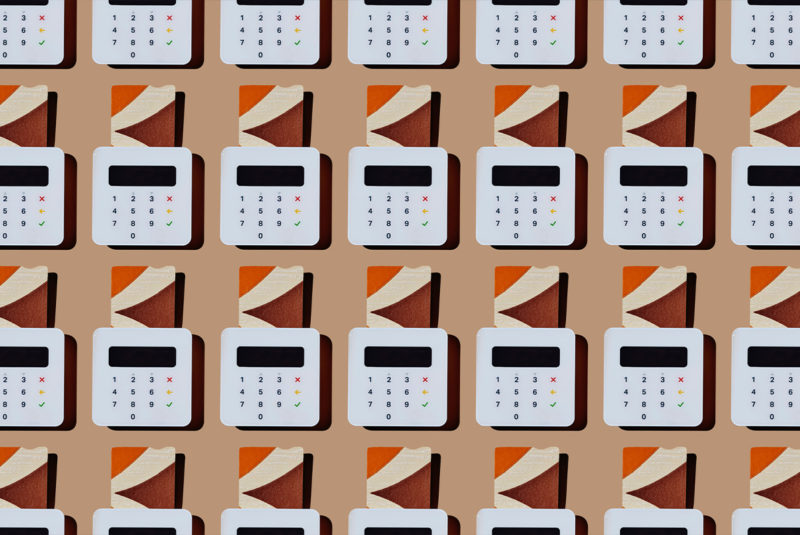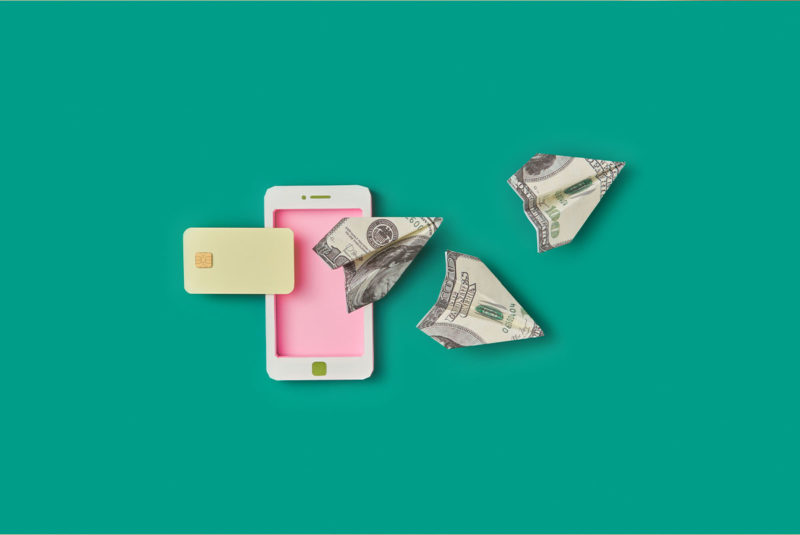If you have bad or limited credit, you won’t qualify for the best credit cards on the market. But you still have options available to help you rebuild your credit, including secured cards.
Secured credit cards require you to submit a refundable security deposit when you’re approved. This deposit will fund your credit limit for the card. Card issuers require a security deposit because it makes the deal less risky for them.
Best Pick For: Earning Rewards
Bank of America® Customized Cash Rewards Secured Card
The Bank of America® Customized Cash Rewards Secured Card breaks the mold of secured cards, offering a solid cash back program for people without the best credit.
Unlike most reward cards, you won’t be locked into a specific set of bonus categories. Instead, you can choose your own 3% category from a list of several options, including popular picks like gas, dining and online shopping.
This card requires a security deposit of $300 to $4,900 to get started, and the amount you deposit will determine your credit line. Here’s a nice feature: Bank of America will check in on your account and credit history now and again. If they see that you are using the card responsibly, they may return your deposit and allow you to continue using the card.
Best Pick For: Introductory Bonus
Discover it® Secured
The Discover it® Secured is one of the best secured credit cards thanks to its rewards program, which is pretty good compared to many unsecured cards.
This card requires a minimum security deposit of $200 and a maximum deposit of $2,500, depending on your creditworthiness. The amount you deposit will be your credit limit.
Discover will review your account and your credit every eight months. If they see responsible card use, they may return your security deposit and allow you to continue using the card. There is no program to upgrade to a different Discover card.
Best Pick For: Low Security Deposit
Capital One Platinum Secured Credit Card
With most secured cards, your credit limit will be equal to the amount you provide for the security deposit. But that’s not necessarily true for the Capital One Platinum Secured Credit Card.
Instead, they will tell you the minimum security deposit that’s required based on your creditworthiness. It will be one of the following:
- $49
- $99
- $200
Whichever amount you’re required to pay will fund an initial credit limit of $200. So even if you’re only required to deposit $49, you’ll still get a $200 credit limit.
But there’s more – Capital One will allow you to deposit more than your minimum required amount, up to a maximum of $1,000. If you deposit more, the total amount deposited will become your credit limit. So a deposit of $1,000 will get you a credit line of $1,000.
You have to make deposits within 80 days of being approved for the card and before you activate the card. Once you activate the card, your initial credit limit will be set.
Best Pick For: No Annual Fee
BankAmericard® Secured Credit Card
Some secured cards have annual fees, others don’t. Not only is the BankAmericard® Secured Credit Card lacking an annual fee, it also gives you one of the largest potential credit lines compared to other secured cards.
You can deposit anywhere from $300 to $4,900, and your credit line will equal your deposit. Not bad if you plan on making a lot of purchases each billing period.
Like with all the cool secured cards, Bank of America will check your credit and may give your security deposit back, allowing you to continue using an unsecured version of the card.
Runner-up
- Secured Sabel ONE Credit Card
Best Pick For: High Security Deposit
U.S. Bank Secured Visa® Card
Trying to build up your credit, but need a lot of spending power? The U.S. Bank Secured Visa® Card might be right for you, although you’ll need to put down a deposit to match.
Your security deposit can range from $300 to $5,000. If you need to use your card more than that, you can make payments throughout the month.
(Just a note: maxing out your credit card each month is bad for your credit utilization, so try to avoid that.)
This is one of very few secured cards where your security deposit will actually earn interest, although it’s just a tiny bit. The only downside here is the small annual fee. It’s a very reasonable price to pay for the chance to improve your credit.
Best Pick For: No Credit Check
Secured Sable ONE Credit Card
Most credit cards require a credit check when you apply. They’ll use a hard inquiry to take a look at your credit reports, and they’ll use that information in their approval decision.
But the Secured Sable ONE Credit Card is different because Sable won’t run that credit check, giving you a better shot at approval if you’re struggling with bad marks on your credit reports.
You’ll just need to provide a deposit to qualify: up to $10,000.
Runner-Up
- OpenSky® Secured Visa® Credit Card
Best Pick For: Self Customers
Self Secured Visa® Credit Card
Secured cards are a great way to rebuild your credit scores, but have you heard of credit builder loans?
Self’s credit builder loans give you another way. They’re a type of loan used exclusively to build your credit, rather than give you cash. First you pay off the loan amount, ideally showing a responsible record of payments, and then you get the money.
Self took things a step further and now offers the Self Secured Visa® Credit Card, an extension of its loan program. It’s only available to Self customers. You’ll just need to:
- Create a Self Credit Builder Account
- Make at least your last three monthly payments on time
- Save $100 or more in your account to be used as your credit line
- Pay all outstanding fees
- Choose your credit limit based on your savings and get your card
Best Pick For: Military Members and Their Families
NFCU nRewards® Secured Credit Card
Military members (retired and active-duty) and their families have several credit unions to choose from, but none can match the NFCU nRewards® Secured Credit Card if you’re trying to recover from bad credit and earn some points.
The minimum required security deposit is quite low at $200, giving you an easy way in. And NFCU includes a pair of great features:
- After only three months, NFCU will check your credit and may increase your credit limit.
- After six months, NFCU will begin reviewing your account monthly to see if you qualify for an upgrade to the unsecured Navy Federal Visa® cashRewards Card.
Like with other credit unions, you’ll enjoy no annual fee, no balance transfer fee and no foreign transaction fee.
Best Pick For: Business Owners
FNBO Business Edition® Secured Mastercard® Card
Options for building business credit are scarce. FNBO offers a way to build business credit, but if you check the details, you’ll see that it comes with some heavy lifting.
It has a very high maximum ($100,000), but to get the card, you have to put down a deposit of 110% of the credit line you want. That means if you want a credit line of $1,000, you must deposit $1,100.
It offers some benefits, the best being that you earn interest on the deposit. They also offer protection from liability for fraudulent charges and identify theft.
However, this card doesn’t offer any rewards and has a high variable APR. Given the high bar for entry and no rewards, it might be better if you find another way to improve your business credit. Strengthening your credit scores first may open other doors that are more advantageous.
How Does a Secured Credit Card Work?
Secured credit cards work almost exactly like regular, unsecured credit cards. The main difference is that with a secured card, you have to provide a refundable security deposit that is typically the same as the card’s credit limit.
Most secured cards are designed for cardholders with no credit, bad credit, or limited credit. The risk of nonpayment or default can be higher among these groups, so lenders require security deposits as a safeguard.
With some secured cards, you might be able to get your deposit back without closing the account simply by using responsible credit management practices. Some credit card companies will even upgrade you to a different (and potentially more rewarding) unsecured card if you show them you can manage credit well.
Other than that, the differences between secured and unsecured credit cards are minimal. You still have to make a minimum monthly payment, and you’ll still be charged interest when carrying a balance.
Secured cards tend to offer fewer rewards and benefits (if any), but that’s normal for cards geared toward those with limited or poor credit.
No Credit Check Credit Cards
Some secured credit cards don’t require a credit check when applying, which means you’re almost guaranteed to be approved. It’s still possible to be denied, but chances of that are relatively low.
If you’ve been denied for other secured cards, these may be your last options. Since they won’t check your credit you can probably get one of the following cards as long as your finances can handle it (some cards like these may check your credit, but they don’t necessarily use it to make the approval decision). You may still be denied if your identity can’t be verified, or if your income is too low.
These cards are known for having relatively poor customer support, and the payment processing systems may be slower or buggier than with other cards. This makes them riskier to use, and we don’t recommend them unless you truly can’t get anything else. Even then, they may not be a good idea. Some cards like these don’t require bank accounts, making them more attractive for people in certain situations.
If you use one of these cards, be sure to completely understand how to make on-time payments so you don’t wind up accidentally hurting your credit instead of helping it:
- First Progress Platinum Elite Mastercard® Secured Credit Card: $29 annual fee, security deposit/credit limit of $200 to $2,000
- OpenSky® Secured Visa® Credit Card: $35 annual fee, security deposit/credit limit of $200 to $3,000
- Green Dot Platinum® Secured Card: $39 annual fee, security deposit of $200 to $5,000
How To Build Or Rebuild Credit With Secured Credit Cards
Using a secured card is basically like using any other credit card. Most of the same rules apply, but a refundable deposit is also involved.
- When approved for the card, make as large a security deposit as you comfortably can to get as large a credit limit as possible. This will make it easier to keep your credit utilization lower, which is better for credit scores. And you won’t have to worry as much about hitting the limit when shopping, because you’ll have more available credit.
- Always pay your bills on time. Make at least the minimum monthly payments.
- We recommend paying more than just the minimum payment. Aim to pay off your statement balance in full each month to avoid interest and help your credit utilization.
- Be patient. The only way to establish a positive credit history is to consistently make on-time payments over a long period.
- Track your credit using a free credit monitoring service to be sure that you’re making progress, and to get specific tips based on your credit reports.
- As your credit improves, eventually you’ll be able to qualify for more rewarding credit cards. You can always check to see if you’re pre-qualified for any cards without hurting your credit scores at all.
- When you’re ready to move on to an unsecured card, pay off your card balance in full. Then you can close the card account and get your security deposit back (some issuers also have programs that let you upgrade to an unsecured card account).
Can You Be Denied When You Apply for a Secured Credit Card?
Because secured credit cards require a deposit, the risk on the lender’s part might seem low enough that there’s no point in denying applications. But that’s not exactly how it works.
You can be denied for a secured credit card. In general, it’s for the same reasons you’d be denied for any credit card: Your credit history or other personal/financial information doesn’t measure up to the issuer’s standards, or there was something wrong with your application.
The actual reasons for your denial may vary, but they may include warning signs like bankruptcies, inadequate income (or lack of a stable income), perpetually late payments and even poor management of any bank accounts you hold or have held with the issuer in question.
The good news? It’s your right to know why you were denied, and you should ask if the issuer doesn’t tell you. That way, you know exactly what to work on in order to get your credit to a place where you’re more likely to be approved.
Credit Builder Loans
If you have poor or limited credit you have a few different routes available to you. As an alternative or complement to a secured card, you may want to look into credit builder loans. A credit builder loan is a special type of installment loan that’s designed to build a positive credit history and good credit scores.
If you’re approved for one of these loans, the amount of the loan goes into a special account you can’t access. You make payments every month to “pay off” the loan, and the bank reports this positive activity to credit bureaus. Once you’ve paid the entire amount of the loan, you’ll get the money that was “loaned” to you from the special account that you couldn’t access until the loan was paid off.
Secured Business Credit Cards
When starting a new business entity, your business needs to build credit too.
You can typically open business credit cards based on your personal credit. Like regular consumer cards, it’s possible to start with a secured business card if your credit isn’t so great. This could be a good option if you’ve been denied for unsecured business cards.



